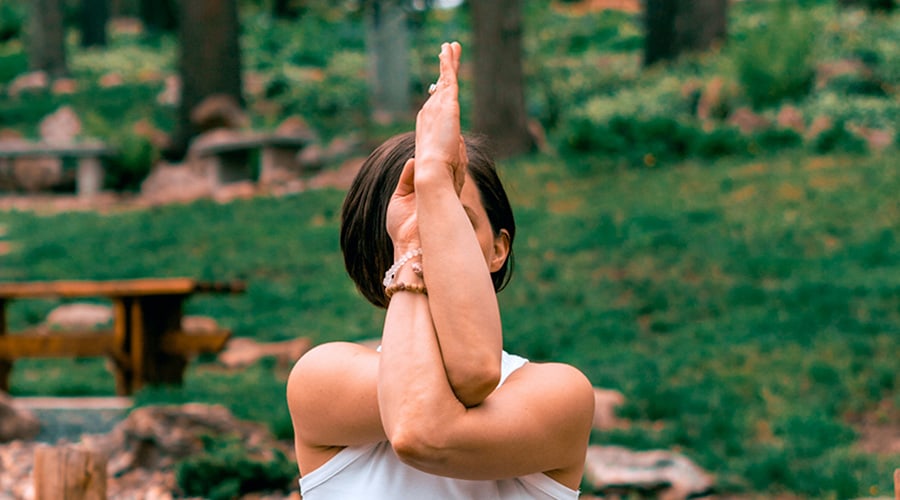
Society today likes to show life as one big fairy-tale, with maybe a few minor bumps now and then, here and there. Anything which doesn’t pander to this scenario must be bundled up tightly and shoved silently into oblivion. That is how most Indian households take a stand against mental wellness. If it’s not aired openly, it doesn’t exist. These are unwritten, unspoken rules which are not taught in any classroom but are, somehow, unanimously followed in at least 70-80% of Indian families.
It’s a small wonder that a few years ago, it was declared that Indian women are among the most depressed in the world. How could it not be? There is no such thing as mental unhappiness in our traditional society. If a person had nice clothes, a comfortable home and food on the table then “what could possibly be wrong? is the way the thinking goes. So, that leaves only two possibilities, sanity or insanity; nothing in between.
The new normal…
Today’s Indian youth, however, have realized the need for mental well-being along with being physically fit. While some misuse it to get their retail therapy and as an excuse for other mindless addictions, there are those who volunteer their time taking helpline calls, or starting online channels for people to share their troubles, while some share relevant content on social media to educate others on the reality of mental illness. It is most definitely a malady that is growing at a lightning pace among the Indian society. That is why numerous celebrities like Deepika Padukone, Shaheen Bhatt, among others, have come out with their stories in the hoping of making this a topic that can be spoken about at home, or with professionals, without being ostracized.
The signs are there. The chronically depressed will show signs of weight loss, listlessness, failure to get out of bed, deep sadness and tears. It is an illness, as real as any physical one, with equally debilitating repercussions to life. The less obvious signs are panic attacks, anxiousness, seeming to always be loud and unnaturally happy; it varies from one individual to the next.
Mental unwellness does exist…
If a student can feel so much fear to open up to one’s family and rather end her life than to bring so-called shame by admitting her lacking or failure, then it is frighteningly obvious that our way of dealing with mental wellbeing needs fixing.
The statistics for mental ill health are overwhelming and exist across all demographics, geographical locations and communities. This cannot be classified as the disease of the elite, the middle-income householder or a pauper. It is an illness which is brutal and unprejudiced in its attack. The mind can be fooled to believe the innermost thoughts if they are not given an opening to vent.
The difference between the technology savvy Indian and the ones who live more simpler lives is the awareness about the need for help. A real-life story about washer-woman Devi was shared on a private IG page. She takes the time to dress in her most colorful sarees, adorn her wrist with multi-colored glass bangles with sindoor applied thickly on her scalp where the hair is parted to catch by the nape of the neck in a tightly coiled plait. The jasmine strands dangle and waft their perfume ahead of her step and she is a sight guaranteed to cheer the most bored onlooker. However when she thinks no one is looking, the shoulders droop, the eyes turn dull, the wide mouth smile turns down and the steps are pronounced and slow. Thankfully, she was asked, “Is everything okay?” Caught unawares, she had to admit that there were days that she couldn’t get out of bed and found no purpose to be alive. Not knowing what was making her feel this way, she became more anxious and tried to portray a picture of joy.
Stories like hers, exist everywhere. The lucky ones find a way out while the others don’t head to a good fate. This is why there is a huge need for awareness. Women, men and children need to know that they are not alone. They need to be told that it is okay to talk about feelings and that there are ways of getting help.
Break the Stigma…
Help can first come in the way of breaking the stigma. The most well-educated individuals feel anger and embarrassment at the thought of counselling. It is perceived as a flaw or a weakness.
Helping those with mental health issues must be done with tact, care and kindness. If the clinic has an intimidating structure or the questions asked are too personal or awkward, no one will seek help. Privacy must be exercised and the testing needs to be done on a more personal level rather than on a broadly classified scale.
Gathering data can be done by filling a form. Patients find it easier to write rather than speak within earshot of others. It has to be recognized as a disease which can be cured, not as a frivolous waste of time.
While some mental illnesses are caused by unknown factors there are others like abuse, postpartum depression, loss of a loved one, downfall of a business and so on which should find an outlet to help them recover.
A young mother often has no idea why she is overcome with a feeling of utter loneliness and disinterest. The problem is barely addressed, even today.
Watch and learn how your stress and emotions talk…
Finding an approach to halt the spread of mental illness is crucial at this stage. By finding ways to monitor stress levels or having a checklist when one feels that their emotions are beginning to unravel can actually save lives. Teaching the patient to take his own pulse when feeling an anxiety attack or having them call a helpline or a support system is the first step.
Today technology has also created wearables in the form of watches, sunglasses and also in certain garments. They detect rising stress levels and alert the person before it gets out of control.
Unlike terminal illnesses, mental illnesses can be saved from meeting a sad fate. The answer lies in generating conversations to make this topic a commonly discussed one and not one that needs to be swept under the seemingly cozy strands of a cashmere carpet! When it becomes commonplace and there is no fear of being judged we are together contributing to a society which is like a large joint family. We don’t have to necessarily share in each other’s joys but we can certainly help shoulder some of the burden of the sorrows.
To be part of an aware society is crucial because sharing knowledge of this kind will have a domino effect and help make testing available everywhere. Imagine if testing centers existed only in the metropolitan cities, that in itself is a red flag which will prevent people from opening up.
Mental agony can catch anyone unawares. Are we prepared to sacrifice the health of our loved ones at the cost of so-called societal stigmas?
CoHeal.ai is a smartphone enabled wellness platform enabling real-time measurement of vital health indicators. CoHeal.ai focuses on making wellness accessible, affordable and easy-to-use, using existing technology coupled with recent advancements and human expertise to provide a smartphone-based, AI-enabled, non-invasive, quantitative, point-of-care-testing platform.


